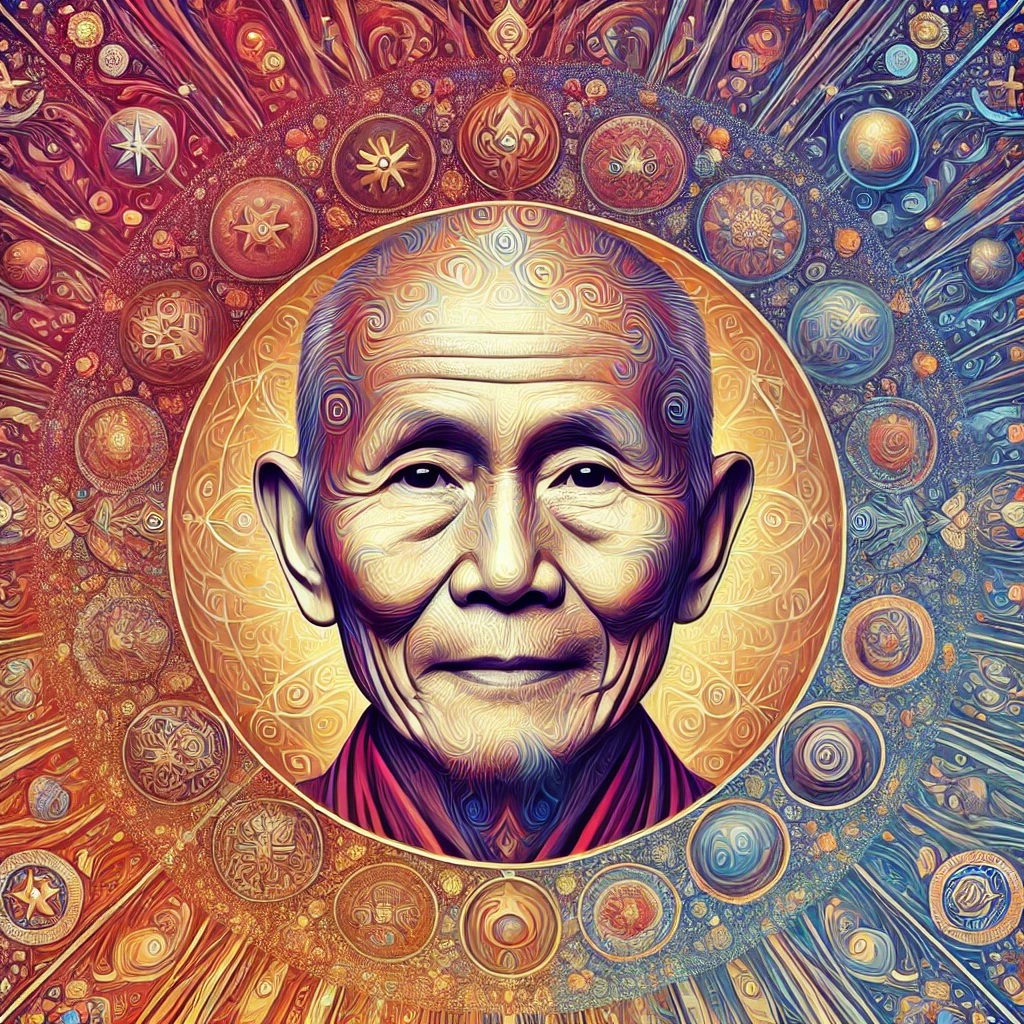Thich Nhat Hanh

Birth Date: 1926-10-11
Death Date: 2022-01-22
Place of Birth: Vietnam
Place of Death: Vietnam
Century: 20th
Region: Vietnam
"Smile, breathe, and go slowly."
Born in Vietnam, Thich Nhat Hanh was a Buddhist monk, teacher, and writer who became a global leader in the movement for mindfulness and peace. He founded the Plum Village Tradition, a global community of mindfulness practice centers, and wrote extensively on topics such as mindfulness, compassion, and peace.
Thich Nhat Hanh encourages living mindfully, being aware of our actions, and treating others with compassion. He believes that by understanding our connection to everything around us, we can create a more peaceful world.
The Miracle of Mindfulness: A practical guide to meditation, teaching readers how to bring mindfulness into everyday life. Peace Is Every Step: A collection of essays that encourage mindfulness and living in the present moment, promoting peace and understanding.
Thich Nhat Hanh was influenced by traditional Vietnamese Buddhism, as well as by Mahayana Buddhist teachings on compassion and interconnectedness. He was also inspired by his personal experiences of war and conflict, which shaped his dedication to peace and mindfulness.
Thich Nhat Hanh’s teachings have influenced a wide range of people, from Buddhist practitioners to secular mindfulness advocates. His work has inspired the global mindfulness movement and continues to impact fields such as mental health, education, and social activism.
During the Vietnam War, Thich Nhat Hanh’s call for peace and his criticism of both the North and South Vietnamese governments led to his exile from Vietnam. Some traditional Buddhists also criticized his emphasis on Engaged Buddhism, feeling that he strayed too far from monastic detachment.
Thich Nhat Hanh faced criticism from some political groups for his neutral stance during the Vietnam War, as well as from more conservative Buddhists who felt that his activism was inconsistent with traditional monastic practices.
Thich Nhat Hanh’s teachings on mindfulness and Engaged Buddhism have had a profound and enduring impact, influencing millions around the world. His approach to applying Buddhist teachings to daily life and social issues continues to inspire practitioners of mindfulness, as well as those seeking to live more peaceful and compassionate lives.
Thich Nhat Hanh was nominated for the Nobel Peace Prize by Dr. Martin Luther King Jr. in 1967, in recognition of his work for peace and reconciliation during the Vietnam War. Despite living in exile for decades, he remained deeply connected to his homeland and eventually returned to Vietnam in his later years.





